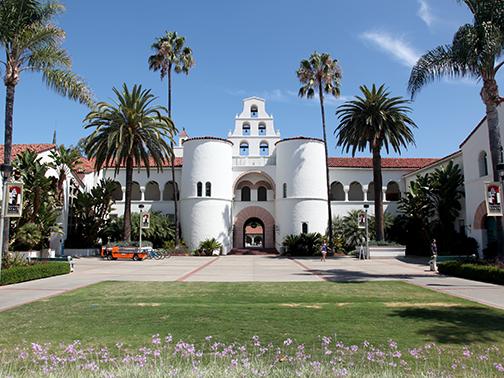Researchers may have found a new way of conducting the census that saves money, time and a headache.
James Kelly, a masters student at San Diego State, came across the subject while he was searching for a thesis topic. After investigating the details of the history of the U.S. Census, it turned from a topic to cover his thesis to a proposal that could be revolutionary in the way the federal government counts the country’s population.
Kelly said the current method of mailing out a questionnaire to all households is inefficient and unnecessary, considering there are alternative methods for information gathering.
“It’s more of an issue of accuracy and cost,” Kelly said. “The census will cost up to $22 billion. They have to count (millions of) people, mainly the adults filling it out for their kids, then mail the questionnaires, which is 80-90 questions per household, and put all of that data into a database. You don’t need to do that, especially when the data is already available.”
Kelly said the problem with questionnaires is the inaccuracy of the data, as many people answer the questions without knowing the information off the top of their heads. They either have to go search for the information or they guess, which leads to the government recording incorrect data. Kelly said the best way to eliminate the issue is by utilizing existing sources.
“My proposed way is to take the data from existing sources and conduct the census,” Kelly said.
Researcher and MIS professor Murray Jennex, who also contributed to the ongoing project, said some sources are organizations we interact with on a daily basis.
“Google knows more about us, and so does Walmart and Target,” Jennex said. “All of the different companies do. The problem is they’ve never shared data on people. It’s an approach to doing the census privately, without knocking on doors.”
Jennex said this is important because we rely on the population to designate a certain number of delegates to each state. If not taken correctly, which often happens with the census, the government will send inaccurate numbers of delegates per state, giving more or less to each state respectively.
According to a university press release, one of the team’s primary concerns is getting the companies to trust them enough to partner with the team in sharing personal data. They want to create a system that shares the data necessary to conduct the census, but protects the public from disclosure of information, such as social security numbers and banking information. If they can create a system that will do so, they say many businesses might be more willing to cooperate.
Problems also arise with the prospect of inaccurately defining poverty in the U.S. The current census does not account for money paid toward obligations, like school and raising children or other claimed dependents. Asking about the population’s racial background and gender are also sensitive areas. Jennex said these considerations should not be part of the census because the information is not necessary in counting the population, and it can lead to more harmful implications.
“Collecting census data was used horrendously in the past by other countries,” Jennex said. “Nazi Germany used it to eliminate the Jews. How can we ensure that the data is used ethically?”
The experimenters say there are still barriers to get over before it can be used as an official system of government. But, once they have overcome them, they said they would like to see the new system implemented immediately.










